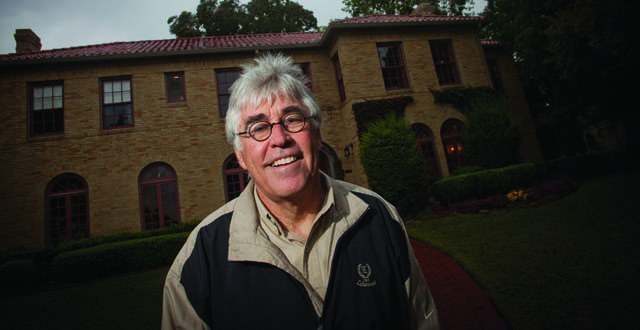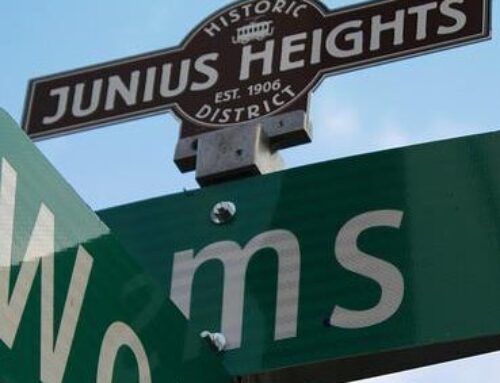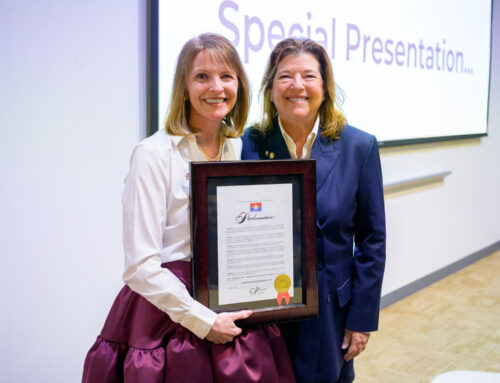With the hundreds of football games played every year, it’s hard to imagine that any one game could be so monumental that it still would be a topic of conversation more than 40 years later, but that’s exactly what has happened with the faceoff between the Texas Longhorns and Arkansas Razorbacks in Fayetteville, Ark., on Dec. 6, 1969.
Some call it “the game of the century,” and neighbor Mike Looney makes it easy to understand why in his documentary, “The Big Shootout: The Life and Times of 1969,” which will be made available to the public at the end of November.
The film won first place for best sports documentary at the Hot Springs Film Festival in Arkansas, and of the 800 films submitted it was the only film the judges awarded a five-star rating. It sold out the Texas Theater in Oak Cliff, as well as the Clinton Library in Little Rock, and it drew the largest crowd at the Dallas Film Festival. At both the Dallas and Hot Springs film festivals, the film was so popular they had to offer second showings.
The Texas-Arkansas championship game was played during the 100th year of college football. Because of that, the game became the first college football championship game arranged for television. There was much anticipation leading up to the game, and then, five days before the game, it was announced that President Richard Nixon would attend to crown the national champion. The winner would go on to play at the Cotton Bowl, and the loser would go on to play at the Sugar Bowl.
The outcome has long left its mark on both sides of the field (spoiler alert), particularly for the losing team, the Arkansas Razorbacks. While showing “The Big Shootout,” it became especially apparent to Looney, co-producer and co-director of the film, that the game is something Arkansas fans still hold near and dear to their hearts more than four decades later.
“It’s sacred territory for Arkansas people,” Looney says. “The whole country was watching their team, and the conception was that Texas was Goliath and Arkansas was David, but the truth is, Texas was scared to death that day. Arkansas was tough opposition.”
But football’s just half the story. The film delves into the cultural and political aspects surrounding the game, and in 1969 there were a lot of them.
For starters, it was the last year the two teams had all white players, and it was the first game Arkansas didn’t play the song “Dixie” to honor the wishes of a group of black students. They never played “Dixie” again. It was also the same year as the draft lottery for the Vietnam War. With Nixon and half the federal government in the house, students who opposed the war figured it was prime time for a peace demonstration, so during the game they arranged hundreds of white crosses in the shape of a peace sign on a hill.
Looney and his team began filming the documentary three years ago, which he believes might have been divine intervention, because they interviewed three of the key people before they died: Texas coach Darrell Royal died in 2012 at 88; Beano Cook, the sportscaster who arranged the game lineup so the game would be television-ready, died in 2012 at age 81; and Texas quarterback James Street died suddenly of a heart attack earlier this year. “James Street came to the second showing of the film festival in Hot Springs, and it was the only time he got to see it, because he died shortly after that, Looney says. “It was very emotional for him, seeing the film.” Looney’s team also interviewed Arkansas coach Frank Broyles, who infamously almost never talks about the game, before Alzheimer’s began to fog his mind.
To learn more or to purchase the film, visit bigshootout.com.






